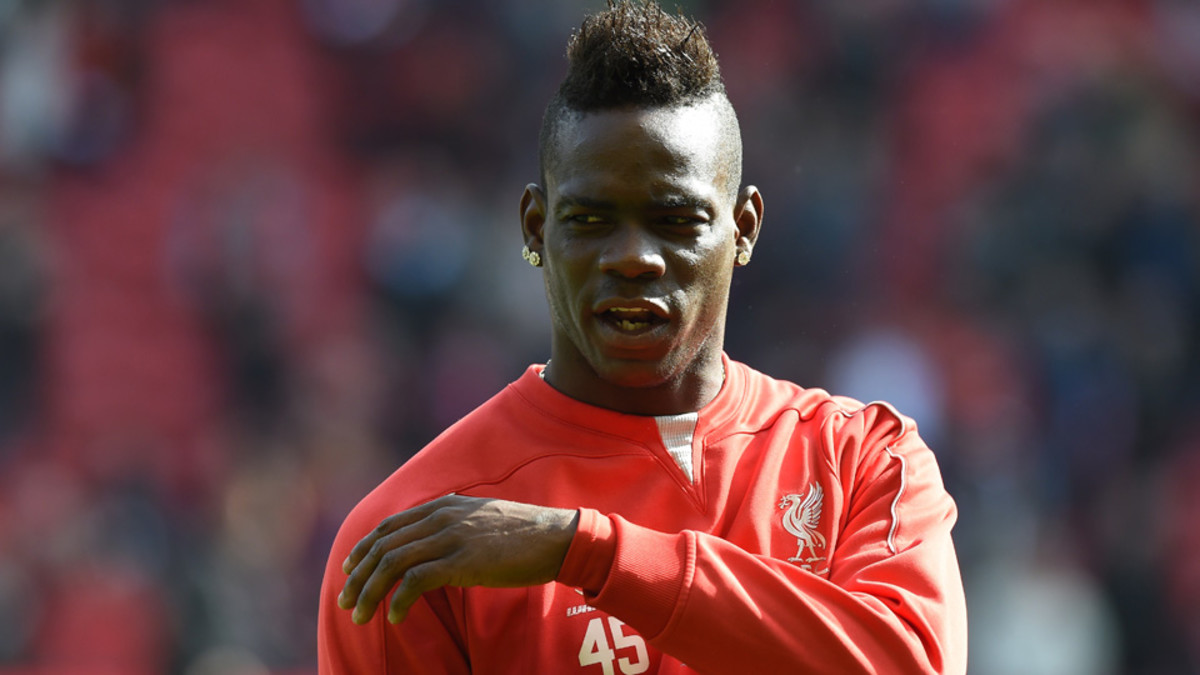Balotelli subjected to more than 8,000 discriminatory social media messages
When Mario Balotelli poked fun at Manchester United on Twitter during the team's surprising 5-3 loss to Leicester in the Premier League, the Liverpool striker would have expected some disgruntled replies.
What Balotelli received, though, was a torrent of vile abuse that was beyond comprehension.
"Go eat some bananas and get ebola," was one response. Another simply repeated the word "monkey" five times. Dozens of other comments were just as bad.
All Balotelli had written was, "Man utd ... lol."
Those hate-filled responses back in September were among more than 8,000 discriminatory messages directed at Balotelli on social media so far this season, according to a study undertaken by an anti-discrimination group in Britain. Fifty-two percent of those posts were racially abusive.
"It is really shocking," said Roisin Wood, director of Kick It Out. "We knew there was an issue but even we were shocked by how many (abusive messages) the players have received."
Planet Fútbol Podcast: USA-Mexico rewind, Champions League reactions
The study showed that Balotelli has been the most-abused Premier League player on social media from August to March. Arsenal forward Danny Welbeck (1,700 discriminatory posts received) and Liverpool striker Daniel Sturridge (1,600) were also heavily abused. All three players are black.
Research showed that Premier League clubs and players have been targeted by about 134,000 abusive posts on social media. Chelsea, which is in first place in the league, has been subjected to 20,000 of them.
"I think (it is) because we are boring," Chelsea manager Jose Mourinho said Friday. "Top of the league since Day 1. It's something in this country people don't like."
The reasons behind the vitriolic abuse of Balotelli, Welbeck and Sturridge are much more worrying. And it has prompted Kick It Out to form an expert group to tackle soccer-related hate crime across social media. It will work with soccer authorities, the main social-media platforms, organizations dealing with internet safety and the police.
Eighty-eight percent of the abusive messages were on Twitter.
"These people are saying things in a way they wouldn't say directly to somebody's face," Piara Powar, executive director of anti-discrimination and social inclusion network FARE, told The Associated Press. "In that way, people think there are different rules that apply. That's probably the issue that we need to tackle."
Balotelli, who is one of the most recognized players in the world, has suffered racist abuse throughout his career. He was the target of racist chants during Italy's training camp before last year's World Cup, while Spain and Croatia were fined by UEFA during the 2012 European Championship for their fans' monkey chants toward the striker.
After receiving racist abuse while playing for former club AC Milan, Balotelli threatened to walk off the field if it happened again.
"Why Always Me" was a message Balotelli wore on a shirt under his Manchester City jersey that he displayed after scoring against United in a Manchester derby in 2011. He might be asking himself the same question after seeing Kick It Out's study.
Balotelli has previously said he believes racism is less overt in England than in Italy.
Manchester City's downward spiral puts Manuel Pellegrini in crosshairs
"It's far more common to hear racist presumptions and assumptions being made about other people in Italy," Powar said. "Here, I think because of the history of migration to Britain, because of the fact it's been a part of their discourse for so long, there is less acceptance.
"But people see social media space as different to real life."
Powar said these figures take racist abuse — and the possible response to it — to a "new space."
"It will mean police will have to devise a way of how they manage their resources dealing with issues of this kind," he said, adding that social media networks "have proven that they are not too concerned by it (as) regulations don't require them to do too much about it."
Kick It Out only started receiving complaints of social media abuse during the 2012-13 season and has since started reporting the incidents to True Vision — a national reporting facility which was developed to deal with hate crime online.
In the past two seasons, of 161 incidents reported, 11 have reached a conclusion where the offender has been identified and action taken. One of those led to prosecution.





